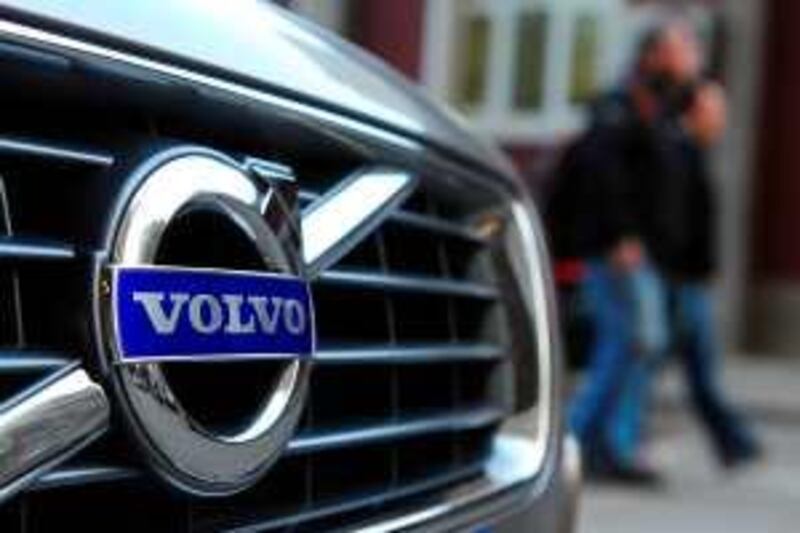Every so often I see something in the business world that makes me want to jump - but in disbelief, not for joy. I feel as though what's going to happen next will be, to borrow television jargon, a "jumping the shark" moment - the precise moment in which a previously successful venture peaks and then it is all downhill from there. The phrase is attributed to series three of the 1970s US situation comedy Happy Days, in which the super-cool Arthur Fonzarelli, or "The Fonz", ended up in California literally jumping over sharks to prove his bravery to a bunch of beach boys.
The sequence was so disjointed from the genre that fans loved and so off-beat in terms of characterisation that the series never recovered from this absurd plot line. Although Happy Days aired for a further seven years, it was never as popular again. Back in the 1980s the persuasive Saatchi brothers, Charles and Maurice, tried to buy Midland Bank, which at the time was Britain's fourth largest bank with US$77 billion (Dh282.8bn) of assets. Saatchi & Saatchi was the most distinguished advertising agency in the world.
But its announcement left a sceptical City of London gawping and the dynamic siblings reputation nosedived. At the height of their prowess they had been the architects of the famous "Labour isn't working" campaign in 1979, which brought Margaret Thatcher to power in the UK. Perhaps "Saatchi isn't thinking" is what the City analysts were saying during the whole Midland Bank, jumping the shark moment. Not too long afterwards, both brothers were removed by the board of Saatchi, which they had founded.
I also had that jumping sensation when, in the '90s, two stalwarts of the telecommunications world, AT&T and BT, decided to tie the knot and establish a merged entity called Concert that would service the Fortune 500 corporations. The Concert-managed network connected to 800 cities directly, but the management and cultures of the two parents clashed and by the year 2000 Concert was clocking up annual losses of $800 million.
Most AT&T and BT investors welcomed the demise of the venture and were left thinking, "Whose ridiculous idea was it in the first place?" I almost jumped last week, but tip-toed instead - for two reasons. First was the announcement by the Chinese car maker Geely that it was buying Volvo for $1.8bn from Ford. The Swedish car maker produced 330,000 cars worldwide last year and Geely aims to sell a further 200,000 Volvos a year in China alone.
China has more than $2 trillion in reserves and last year became the world's top motor market with 13.6 million vehicles. Geely has the financial muscle and its local market has strong demand indicators, which appear to make this deal a savvy acquisition. It follows Tata Motors of India's 2007 acquisition of Aston Martin, Jaguar and Land Rover for $2.4bn. All three are premium brands, owned by a company that also sells a $2,500 car, the Nano.
But the Geely and Tata acquisitions are too early to call in terms of success. One thing I am sure of is that it will create a number of copycat acquisitions from other Chinese and Indian corporations. In fact, don't be surprised if, in a bid to outdo Geely and Tata respectively, one of their competitors makes a jaw-dropping announcement that has the rest of us looking for sharks. Perhaps one of them declares they are buying a hitherto undisclosed NASA project to build flying cars, or merging with a prominent robotics company to develop the ultimate in chauffeur-driven technology.
The second announcement that kept me on my toes was by Bharti Airtel of India to buy the African assets of Zain for $10.7bn; although this one had been in the works for some time. According to Sunil Mittal, the chairman and managing director of the Bharti group, "This agreement is a landmark for [the] global telecoms industry and game changer for Bharti. Bharti's telecoms footprint will now cover 1.8 billion people across Asia and Africa - making it the second largest among telcos."
Only the week before, the global equity research department of Nomura International issued a report assessing the potential risk from the Bharti-Zain transaction. It said: "We would note that although Zain has perhaps not had the best year in 2009 in terms of operational performance in these markets, it has a strong long-term record. Moreover, the previous owner of this portfolio, Celtel, was also a good owner of the assets.
"So we do not regard these assets as wanting in terms of investment or expertise," the report said. "Bharti may be able to bring some change of approach but we find it hard to accept that it will be able to manage these assets materially better. "Our point here is that, as a result, the likelihood is that Bharti will need to operate the assets in a different way, which is likely to risk destabilising the market."
Tough words and perhaps a sign of things to come once the sizzle of the deal has settled. I think it is inevitable that at this rate, one of the titans from China or India is going to find themselves in a jumping moment. When? Your guess is as good as mine but I'm on my toes and keeping my eyes wide open for sharks. Rehan Khan is a business consultant and writer based in Dubai





